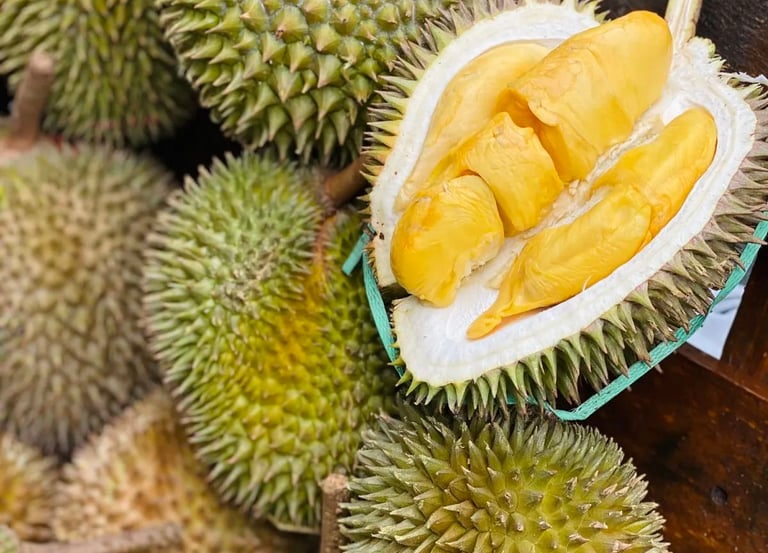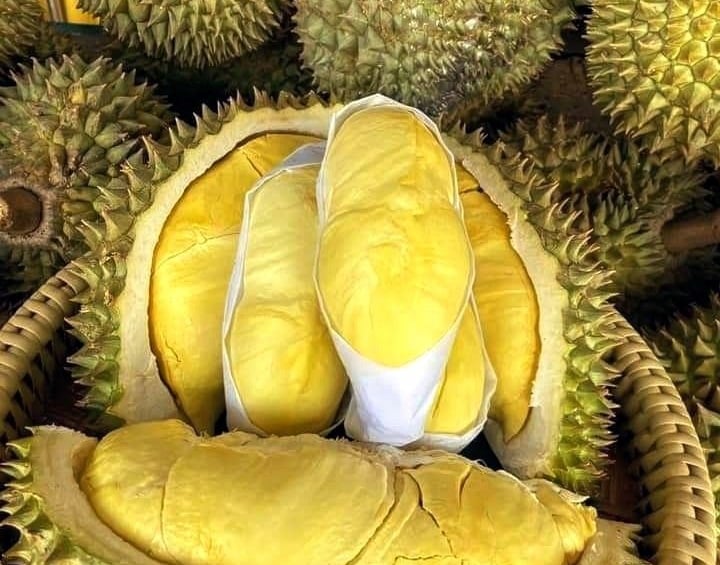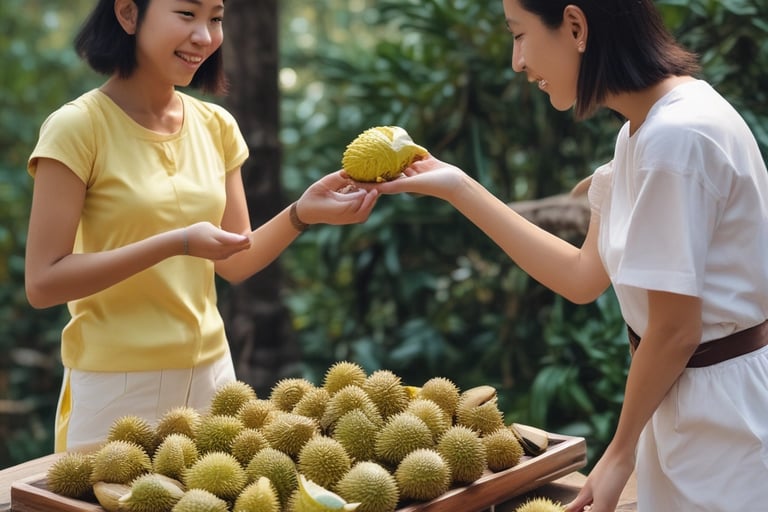Durian: The King of Fruits That Divides the World
FRUITS
Orlando Racelis
10/17/20253 min read




The Origin of Durian Fruit
Durian, known as the “King of Fruits,” has fascinated explorers, botanists, and food lovers for centuries. Native to the rainforests of Borneo and Sumatra, this spiky fruit has deep cultural roots in Southeast Asia, where it symbolizes abundance, resilience, and indulgence.
The name “durian” originates from the Malay word “duri,” meaning thorn, perfectly describing its formidable protective shell. Historical evidence reveals that durian fruits were cherished by nobles in 15th-century Malay kingdoms. Later, European naturalists like Alfred Russel Wallace documented the fruit’s irresistible yet polarizing odor and custard-like texture, describing it as “a rich blend of almonds and cream.”
Today, durian is primarily grown in Malaysia, Indonesia, Thailand, and the Philippines—regions known for their lush tropical climates. Its global popularity continues to rise, especially among adventurous eaters eager to explore Southeast Asian culinary culture.
Nutritional Profile & Health Benefits of Durian
Despite its controversial smell, durian packs an impressive punch of nutrients that make it a true tropical superfruit.
1. Rich in Essential Vitamins and Minerals
- Vitamin C – Helps strengthen immunity and enhance collagen production for youthful skin.
- B-Complex Vitamins (B1, B2, B3, B6) – Supports metabolism and nervous system health.
- Potassium – Regulates blood pressure and heart rhythm.
2. Powerful Antioxidants
Durian contains anthocyanins, carotenoids, and flavonoids, which protect cells from damage and reduce inflammation. These compounds contribute to better cardiovascular health and improved recovery from oxidative stress.
3. Excellent Source of Energy
Durian is naturally high in carbohydrates and healthy fats, making it an ideal energy source for active individuals. Unlike processed snacks, the natural sugars in durian provide sustained energy without a rapid crash.
4. Promotes Gut Health
Its dietary fiber helps regulate digestion, prevent constipation, and maintain healthy gut flora.
5. Enhances Mood
Durian contains tryptophan, an amino acid that aids serotonin production, helping improve mood and sleep quality naturally.
Pros and Cons of Eating Durian
Advantages of Durian
1. Nutrient-Dense: Loaded with essential vitamins and minerals for optimal health.
2. Unique Flavor Profile: Creamy texture and complex taste make it a culinary delight.
3. Cultural Symbol: Deeply embedded in Southeast Asian festivals and traditional cuisine.
4. Energy Booster: Perfect for athletes or those needing long-lasting fuel.
5. Versatile Ingredient: Used in smoothies, desserts, pastries, and savory dishes like tempoyak, a fermented durian delicacy.
#### ⚠️ Disadvantages of Durian
1. Strong Odor: Its pungent smell, often compared to cheese or sulfur, makes it banned in hotels and public transport in many places.
2. Calorie-Rich: High sugar and fat content can contribute to weight gain if overconsumed.
3. Alcohol Interaction: May hinder alcohol metabolism—best avoided when drinking.
4. Limited Availability: Seasonal fruit with short harvest periods and export challenges.
5. Handling Difficulty: Spiky shell can be tough to open safely.
Moderation is key—enjoying durian responsibly ensures you reap its benefits without unwanted effects.
Disclaimer
This blog is for informational purposes only and does not replace professional medical advice. If you have allergies, blood-sugar concerns, or dietary restrictions, consult a qualified health professional before consuming durian. Pregnant women should consume durian moderately and seek medical guidance beforehand.
Call to Action – Experience the Majesty of Durian
Curious to try the King of Fruits for yourself? Visit your local Asian market or tropical fruit store during durian season and savor the rich, custard-like texture that locals adore.
👉 Join the conversation! Share your first durian experience or favorite durian recipe in the comments below. Don’t forget to subscribe to our blog for more tropical food guides and exotic travel inspirations.




Email Us
nichemaster@nichesphere.net
supportservices@nichesphere.net
© 2025. All rights reserved. https://nichesphere.net